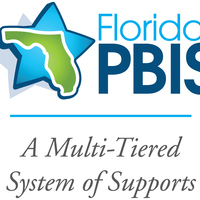01. District-Level Tier 3 Resources
The design of a district-level Tier 3 system builds upon the structures and success achieved at Tiers 1 and 2 and uses data systems and evidence-based practices to support schools and meet the needs of individual students who have intense behavioral concerns (Center on PBIS. (2022). Tier 3 District-Level Systems Guide. Center on PBIS, University of Oregon. www.pbis.org). To do this, districts need to have the following in place: effective multi-disciplinary teaming processes, need-driven professional development, reliable and consistent coaching networks, efficient data systems for evaluation of effectiveness, and protocols for collaboratively engaging with stakeholders (students, families, and others).
By: FLPBIS Updated: 03-12-2025 Education
The design of a district-level Tier 3 system builds upon the structures and success achieved at Tiers 1 and 2 and uses data systems and evidence-based practices to support schools and meet the needs of individual students who have intense behavioral concerns (Center on PBIS. (2022). Tier 3 District-Level Systems Guide. Center on PBIS, University of Oregon. www.pbis.org). To do this, districts need to have the following in place: effective multi-disciplinary teaming processes, need-driven professional development, reliable and consistent coaching networks, efficient data systems for evaluation of effectiveness, and protocols for collaboratively engaging with stakeholders (students, families, and others).
By: FLPBIS Updated: 03-12-2025 Education
02. School-Level Tier 3 Resources
School-level Tier 3 systems benefit from cohesive district collaboration around Tier 3 infrastructure and capacity. The school-level Tier 3 system builds upon the supports and structures of Tiers 1 and 2. School-level Tier 3 systems involve collaborative teaming for the purpose of identifying student needs and levels of support, coordinating resources, and ensuring effectiveness and efficiency of the process. This is done by: providing a continuum of supports for general education and special education students, training/coaching personnel to ensure intervention fidelity, collaboratively engaging stakeholders, and evaluating student progress in relation to supports received to ensure success.
By: FLPBIS Updated: 03-12-2025 Education
School-level Tier 3 systems benefit from cohesive district collaboration around Tier 3 infrastructure and capacity. The school-level Tier 3 system builds upon the supports and structures of Tiers 1 and 2. School-level Tier 3 systems involve collaborative teaming for the purpose of identifying student needs and levels of support, coordinating resources, and ensuring effectiveness and efficiency of the process. This is done by: providing a continuum of supports for general education and special education students, training/coaching personnel to ensure intervention fidelity, collaboratively engaging stakeholders, and evaluating student progress in relation to supports received to ensure success.
By: FLPBIS Updated: 03-12-2025 Education
03. Student-Level Tier 3 Resources
Individual student supports at Tier 3 focus on the behavioral needs that are not being met by Tiers 1 and 2, or if the intensity of behaviors requires more individualized and focused supports. This can include both externalizing behaviors (e.g., aggression, disruption) and internalizing behaviors (e.g., anxiety, suicidal ideation). The student-focused Tier 3 team is responsible for: •assessment, •behavior intervention planning and support, •training/coaching, and • ongoing evaluation(progress monitoring and intervention fidelity) to ensure student success.
By: FLPBIS Updated: 03-12-2025 Education
Individual student supports at Tier 3 focus on the behavioral needs that are not being met by Tiers 1 and 2, or if the intensity of behaviors requires more individualized and focused supports. This can include both externalizing behaviors (e.g., aggression, disruption) and internalizing behaviors (e.g., anxiety, suicidal ideation). The student-focused Tier 3 team is responsible for: •assessment, •behavior intervention planning and support, •training/coaching, and • ongoing evaluation(progress monitoring and intervention fidelity) to ensure student success.
By: FLPBIS Updated: 03-12-2025 Education

